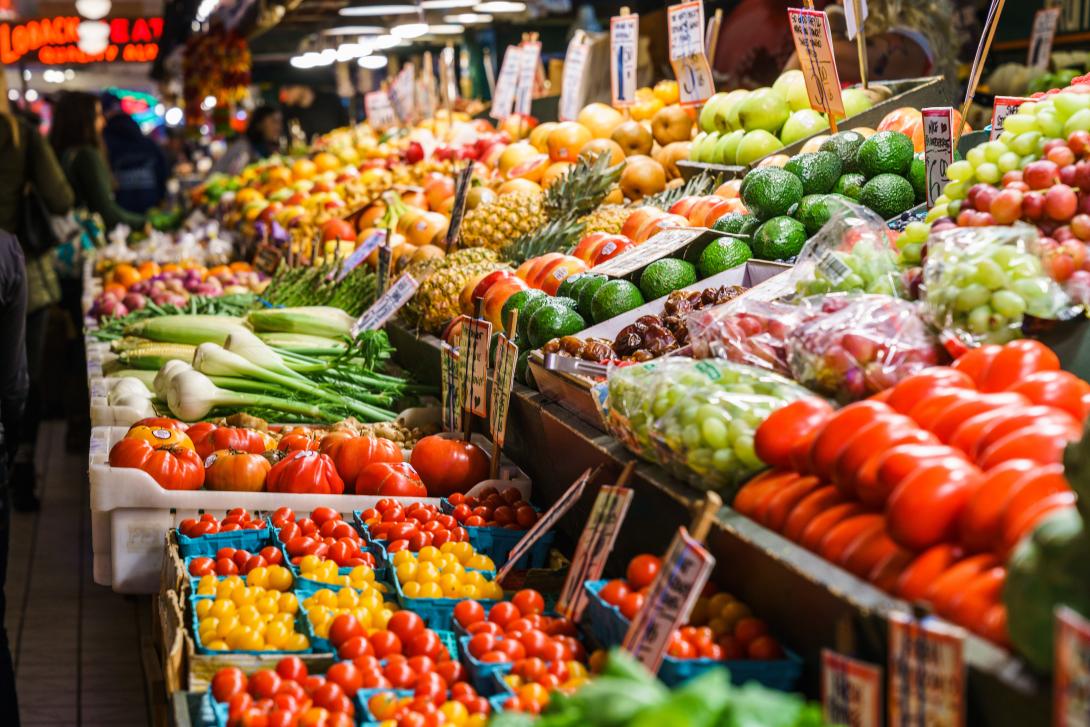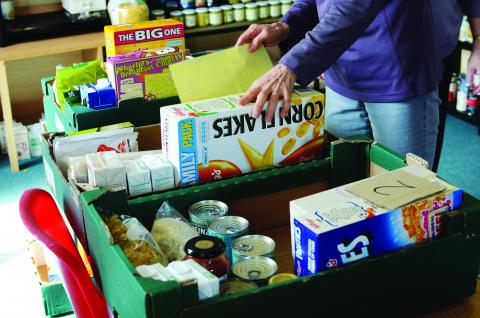27 February 2024
Families cutting back on healthy food risks widening health inequalities

Food insecurity tracker update: Families cutting back on healthy foods sparks concerns of widening health inequalities
Today’s new findings from The Food Foundation’s food security tracking in the UK indicate the worrying impact of food insecurity on public health.
With an election pending later this year, the future of the NHS and improving public health are important priorities for all political parties.
Our newest findings highlight that supporting those on the lowest incomes to afford a nutritious diet should be a central commitment being made in manifestos to improve health across the country.
In this blog, we explore these issues further.
Less healthy diets among the most deprived communities lead to stark health inequalities
Stark health inequalities are highly prevalent in our country, particularly when it comes to diet-related poor health.
The most deprived communities suffer disproportionately from much higher rates of disease, from obesity to type 2 diabetes to cardiovascular disease to dental decay – the income gradient is unambiguous. This pattern of inequality is mirrored when looking at food consumption.
More deprived groups consume far less of healthy foods such as fruit, veg and oily fish helping to explain why we see such drastically different rates of diet-related disease between the least - and most - well off.
For example, pre-pandemic data (the most recent available) shows that the poorest fifth of the population were consuming just over three portions of fruit and veg on average per day whereas the most well-off 5th on average were meeting the recommended intake of five a day.
Diet is a modifiable risk factor for poor health meaning that these health inequalities are largely preventable by increasing access to foods that provide the key nutrition to promote good health.
But now, in the face of the cost of living crisis, new data from The Food Foundation shows we could be seeing an already grim situation deteriorate further.
The gap in consumption of healthy foods is widening between food secure and food insecure families
New data from The Food Foundation’s Food Insecurity Tracker shows that a worrying proportion of food insecure families are cutting back on healthy food, and furthermore, the gap between food secure and food insecure households is moving in the wrong direction.
Of households that reported experiencing food insecurity in the past month, 60% also reported cutting back on purchasing fruit compared to 11% of food secure households.
A similar pattern is seen across vegetables (44% of food insecure households cutting back compared with 6% of food secure) and fish (59% vs 15%).
This is not an issue affecting an insignificant number of individuals. The latest findings from our Tracker showing that 15% of households in the UK are experiencing food insecurity - an estimated eight million adults and three million children.
With such high rates persisting, the potential detrimental impact on health could affect a substantial cohort of the population and considerably widen inequalities.
Healthy food is simply not affordable for many families
A key reason for the disparity in healthy food consumption between the most and least deprived that urgently needs addressing is the cost of healthy food relative to unhealthy food.
With healthy food on average being over twice as expensive per calorie as less healthy options, unhealthy food is a far more feasible option for people on low incomes trying to stretch budgets to the limit.
Not only is unhealthy food often the more affordable option, but for many families it is the only affordable option.
On average, the poorest fifth of the population need to spend half of their disposable income on food to afford the government recommended healthy diet, the Eatwell Guide – a clearly unrealistic proportion, putting a healthy diet out of reach for millions.
While health inequalities driven by the unaffordability of healthy diets pre-date the cost of living crisis, high inflation levels in the past couple years have made affording food an even greater challenge.
Between 2021 and 2023, the cost of healthier foods per 1000kcal increased in price by a £1.00 more than less healthy foods did (£1.76 increase for healthier foods compared with £0.76 for less healthy foods) making the healthy option even less affordable for families.
This issue is further highlighted by The Food Foundation’s Basic Basket Tracker, a shopping basket tracker that measures weekly price changes in what the average man and woman could typically eat as part of a reasonably costed, adequately- nutritious diet (see here for further info).
Since April 2022 when measurement began, the cost of has increased by 24-26% (from £43.52 to £54.64 for the man’s basket and from £40.96 to £50.77 for the woman’s basket).
What can be done?
As we enter an election year, resolving this deteriorating situation should be a high priority for all political parties and we urge them to make commitments in their forthcoming manifestos to address affordability barriers to dietary health and reducing health inequalities.
To ensure that families can reliably afford and access healthy food to prevent food insecurity and diet-related disease, we are calling on all politically parties to commit to:
- Require that the cost of healthy and sustainable diets be taken into account when setting benefits levels and the national living wage to ensure that all families have sufficient income to feed their children a healthy and nutritious diet.
- Expand the Free School Meals scheme to ensure all children can access a hot, nutritious meal in the middle of the school day, guaranteeing that no child in need misses out and are not subjected to stigma for being on Free School Meals.
- Expand eligibility, improve uptake and increase the value of the Healthy Start Scheme to improve access to nutritious food for pre-school aged children.
For the full findings from our food insecurity survey conducted in January 2024 please see here.
For more on the recommendations that The Food Foundation are calling on all political parties and candidates to commit to making to ensure that healthy, sustainable food is available and affordable for everyone across the nation, see our Food Foundation Manifesto here.






